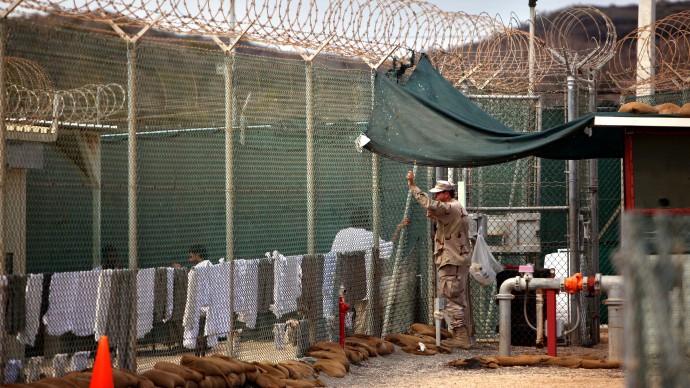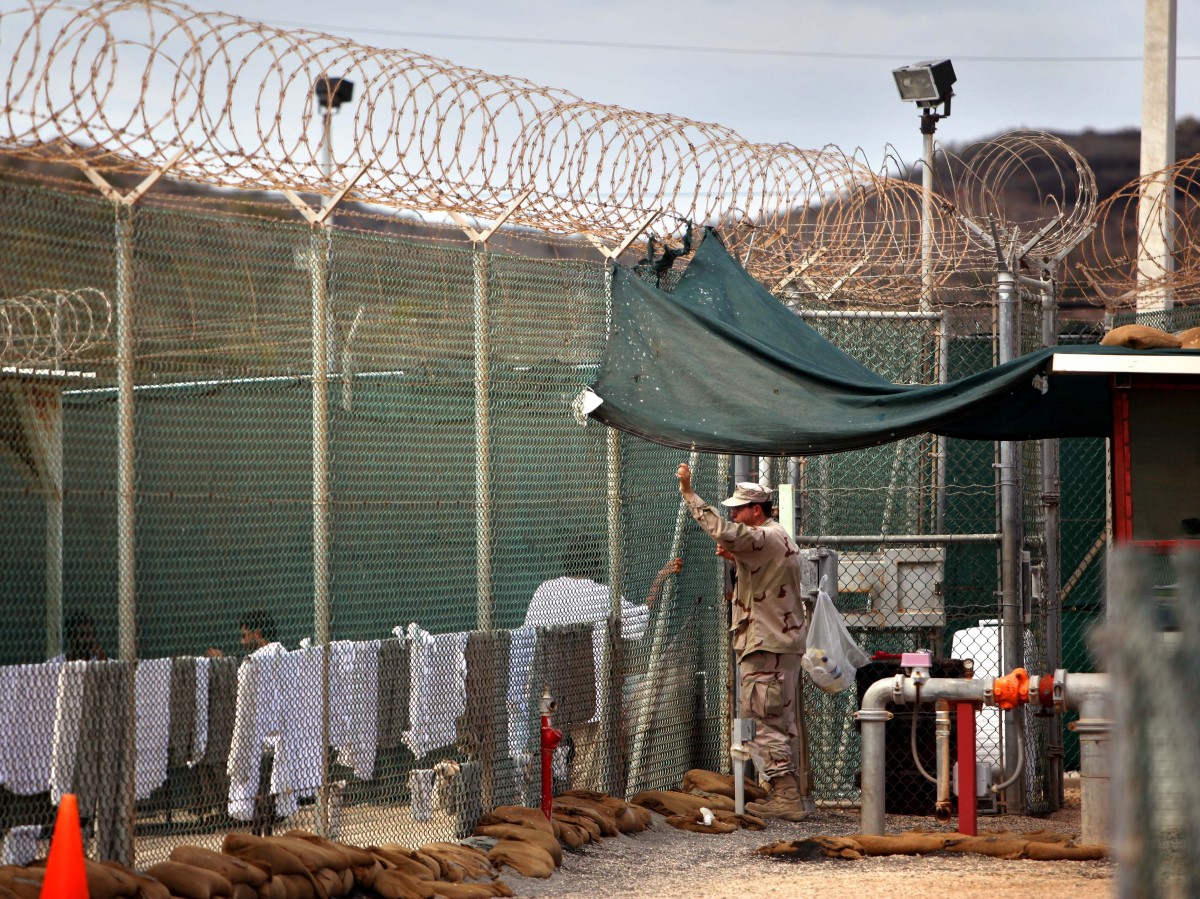
Will 2014 be the year President Barack Obama finally fulfills his 2008 campaign pledge to close Guantanamo Bay prison? It appears, at least, that the notorious detention facility’s closure is something he continues to work toward.
On Thursday, Obama signed into law the 2014 defense spending budget, which changes how the military handles sexual assault and lifts some restrictions on the transfer of detainees from Guantanamo Bay.
After several frustrating attempts, the president is making some progress in achieving his goal of closing the controversial prison. On Dec. 26, Obama released a statement crediting Congress for relaxing regulations that he said had significantly hindered efforts to transfer detainees who had been cleared to leave.
“The continued operation of the facility weakens our national security by draining resources, damaging our relationships with key allies and partners and emboldening violent extremists,” Obama said in the statement. He added that the new provision represents “an improvement over current law and is a welcome step toward closing the facility.”
The new policy gives the Obama administration greater flexibility in the repatriation of Guantanamo detainees to their home countries, but it also keeps in place the ban on transferring detainees to facilities in the U.S.
Obama has not given up the idea of trying terrorist suspects currently detained at Guantanamo Bay through American courts. While signing the new defense bill, Obama again protested congressional restrictions on bringing some prisoners to the U.S.
“The executive branch must have the authority to determine when and where to prosecute Guantanamo detainees, based on the facts and circumstances of each case and our national security interests,” the president said.
Who will be released and who won’t?
Despite restrictions banning detainees from being tried on U.S soil, the new policy will allow 160 detainees to be released in various repatriation processes in some countries, but not all.
At a White House press conference Senate Armed Services Committee Chairman Carl Levin explained which detainees are to be sent home.
“About half of the detainees would be detainees that could be transferred to their third-world countries from which they come,” Levin told reporters. “About half of the detainees would remain in Guantanamo because of the prohibition on transferring them to the United States for detention and for trial.”
Even with some transfer restrictions lifted, the process of sending detainees home remains slow and often occurs on a one-by-one basis, as the U.S. negotiates with the new host countries over monitoring procedures and other security arrangements.
Transfers to Yemen have been particularly difficult, as Yemenis remain the largest single population occupying Guantanamo Bay and are considered by the Pentagon as high risk of rejoining al-Qaeda groups.
Under this new policy, lawmakers will prohibit the repatriation of detainees into Yemen’s society, as they are seen as a security risk, although the Obama administration has been in discussions with the Yemeni government about the creation of a rehabilitation center for returned prisoners.
But they are not the only country negotiating with the U.S to bring their people home. Kuwait, a key U.S. ally, has been lobbying for the return of its two remaining detainees and has built a used rehabilitation center to reintegrate them.
And three Syrians who were approved for transfer before this policy are now facing new barriers. Under these new rules, the Pentagon will cancel their transfer citing that these detainees may aid the war on state terrorism and contribute to Syria’s al-Qaeda rebel forces.
Only the Sudanese government has managed to free its detainees from Guantanamo. Sudan’s government official says its two remaining detainees are currently heading home. After lengthy closed door hearings both detainees were released on Thursday. One of the detainees had completed a sentence after a conviction on terrorism charges, and the other is so ill he’s unlikely to pose a threat.
Ibrahim Idris, one of two Sudanese detainees released, said U.S. prison officials had “systematically tortured” him in the course of his 11-year imprisonment at Guantanamo. Idris, who has been described by U.S. officials as mentally ill, addressed the news conference in Khartoum, just hours after returning home under U.S. military supervision. Appearing weak and undernourished, Idris gave a brief account of his lengthy imprisonment at Guantanamo.
“We have been subjected to meticulous, daily torture,” he said. “We were helpless … on an isolated island, surrounded by weapons.”
He thanked the Sudanese government and human rights organizations for working to secure his release. But he pointed out the inhumane treatment endured by those who participated in the hunger strike this summer, saying those inmates were “doubly tortured.”
Last month, a 19-member task force published a 269-page report, entitled “Ethics Abandoned: Medical Professionalism and Detainee Abuse in the War on Terror,” looking into human rights abuses, the erosion of civil liberties since 9/11, and the treatment of those on hunger strike at Guantanamo.
In July, the outbreak of a hunger strike reached its peak with 106 detainees refusing food; 45 of them were force-fed. The report concluded that the U.S. military’s forced-feeding of hunger strikers was performed in a way that inflicted “severe harm.”
The issue of torture at Guantanamo and even its legitimacy as a legal prison will continue to be criticized, but this new policy that allows 160 detainees — in theory — to be returned home should be cautiously welcomed.
Can the Democrats and Republicans resolve their differences on the issue of detainee repatriation? With midterm elections looming for some lawmakers next summer, it could be seen as a turning point for the president, who may now have room to maneuver on this issue.
Regardless, current law now allows Obama to empty the detention camp of about half of its population. Time will tell if he chooses to do so.


